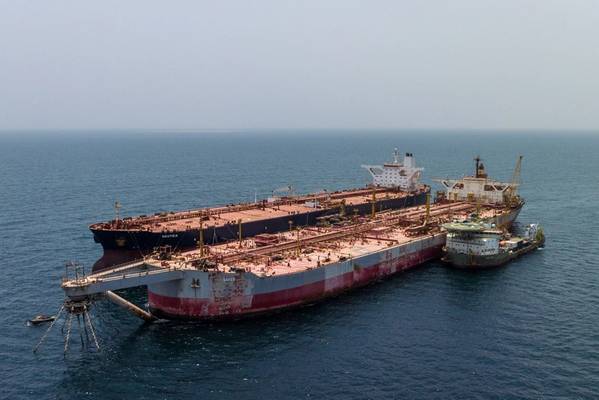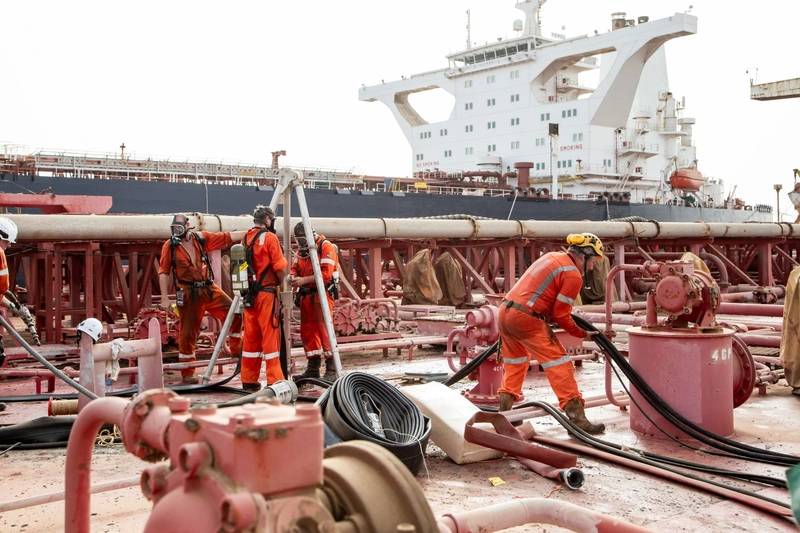
The United Nations said on Tuesday it had started the removal of more than 1 million barrels of oil from a decaying supertanker off Yemen's Red Sea coast in a complex operation it hopes will ward off a regional disaster.
U.N. officials have been warning for years that the Red Sea and Yemen's coastline was at risk as the Safer tanker could spill four times as much oil as the 1989 Exxon Valdez disaster off Alaska.
A U.N. spokesperson said on Tuesday a spill could cost $20 billion to clean up.
The war in Yemen caused the suspension in 2015 of maintenance operations on the Safer, which is used for storage and has been moored off Yemen for more than 30 years.
The U.N., which has never before undertaken such a rescue mission, has warned its structural integrity has significantly deteriorated and it is at risk of exploding.
"In the absence of anyone else willing or able to perform this task, the United Nations stepped up and assumed the risk to conduct this very delicate operation," U.N. Secretary-General Antonio Guterres said.
"The ship-to-ship transfer of oil which has started today is the critical next step in avoiding an environmental and humanitarian catastrophe on a colossal scale."
The United States contributed $10 million for the transfer and urged other countries to chip in the additional $22 million needed for the operation, the State Department said Tuesday.
"The oil transfer is a critical step towards averting an economic, environmental, and humanitarian crisis in the Red Sea and beyond," spokesman Matthew Miller said in a statement.
The oil transfer is expected to take 19 days to complete, the United Nations' Development Programme (UNDP) said in a statement.
"We are obviously very cautious – it's only the beginning of a transfer," UNDP spokesperson Sarah Bel told a Geneva press briefing when asked about the operation's risks.
"The cost of an oil spill is estimated to be approximately $20 billion, and it will take years to clean up," she added.
She warned that any spilled oil could reach the African coast, damaging fish stocks for the next 25 years and destroying 200,000 jobs.
It would also close ports that bring food and supplies to Yemen, where some 17 million people rely on humanitarian aid, she said.
 (Photo: Boskalis)
(Photo: Boskalis)
(Reuters - Reporting by Nadine Awadalla, Nayera Abdallah and Emma Farge; Writing by Clauda Tanios; Editing by Louise Heavens, Jan Harvey and Emma Rumney)